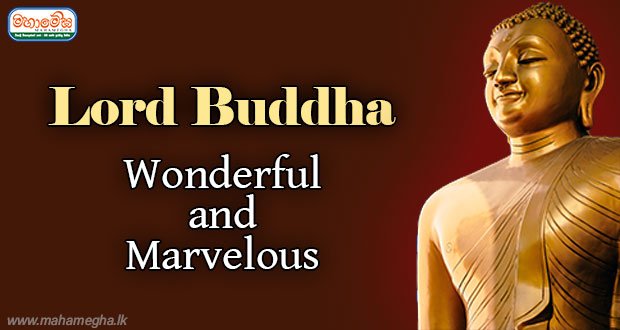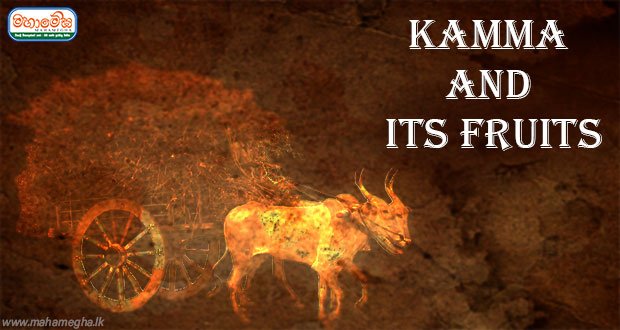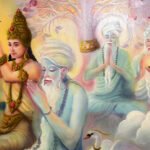[image title=”” size=”full” id=”7391″ align=”none” linkto=”none”]
During the time of the Buddha, Prince Vidudhabha, illegitimate son of King Pasenadi Kosol, massacred the Sakyan family over a caste problem. Thousands of Sakyans who were established in the refuge of the noble Triple Gem were killed unmercifully. Around 182 BC, the unperceptive and disobedient acts of Mahayana monks brought war against all Buddhist in India and Buddhism was wiped out from the country of its birth. Millions of Buddhists were killed and the Supreme Buddha was presented as an evil force that had come to destroy Hinduism. The repercussions of that war stretched its bloody hand to Sri Lanka and caused the death of many Buddhists starting from the Anuradhapura era, and the destruction of many temples. The harm that was done was immeasurable.
Now, this terrible history is repeating itself in Bangladesh. How far will it go and how much damage it will do depends on those who are involved in this conflict. Such destruction on other people is carried out when people blame others for their misfortune or loss and when people see the immorality and cruelty in other’s. And when such thinking is continued with anger and nourished it anger, it leads people to extreme acts of violence.
|
Violence, regardless of the cause, regardless of ‘in whose name’ and regardless of the reason, is wrong. Unfortunately, violence has become inevitable in today’s world. People have become divided based on nationality, religion, caste, wealth and also on political affiliation. Belonging to a group you like is democracy until you start war against another. Mother earth has been reddened many times by wars between such divided groups. And also there is violence and abuse, small scale may be, in almost every household. As long as you put the blame on others, continue to see evil in others and act upon the triggered anger, there is no end to yours as well as others’ grief. Yet, you act violently hoping for some sort of happiness.
The Supreme Buddha was the first ever spiritual leader to speak of complete bliss through cleansing the inner evils. The teachings of the Supreme Buddha make us to look in and see who and what is causing the agitation in you. The mirror of Dhamma should always be turned upon you. That enables you to see the real picture of your suffering.
Violence has its roots mainly in anger which is one of the three main root defilements that exist solely to harm you. To develop an inclination to weaken and destroy anger, you should know how much harm it does to you than anything outside you. On one occasion, the Buddha used the simile of a very hot pan to explain anger. If a person who enjoys comfort, is handed a very hot pan, what does he do? He quickly puts it down. Therefore, in a way similar to avoiding a burning pot, a person must abandon anger.
This is explained further in Kodhana sutra in Anguttara Nikaya. Here the Buddha expounds seven different ways of how an angry person suffers wishing harm on his enemy and the consequences of carrying anger. First the angry person, be it a man or a woman, wishes of his enemy “may he be ugly”. The angry person does not like to see his enemy’s good looks. Secondly, the angry person wishes of his enemy, “may this person sleep badly!” Why is that? An enemy is not pleased with his foe’s restful sleep. Thirdly, an angry person wishes of an enemy, “may this person not prosper!” Why is that? An enemy is not pleased with his enemy’s success. Furthermore, an angry person wishes of an enemy, “may this person not have any wealth!” Why is that? An enemy is not pleased with an enemy’s wealth. Then, five, an angry person wishes of an enemy, “may this person not be famous!” Why is that? An enemy is not pleased with his enemy’s good reputation. He would carry tales about his enemy and try to slander his enemy.
Six, an angry person wishes of an enemy, “may this person not have any friends!” Why is that? An enemy is not pleased with his enemy having friends. Sometimes when we get angry don’t we say “wait and see… he will not have any friends… he will die alone… no one will take care of him” about people?
Seven, an enemy wishes of his enemy, “may this person, after death, be born in the lower realms, in hell!’ Why is that? An enemy is not pleased with his enemy going to heaven. This we say about people we assume to be bad; “they will surely be born in hell.. they will not have a good life after this… ” don’t we? Do we say such things about people we love? And when we say such things are we in a compassionate mood? No, if we are compassionate about even someone who does wrong, we should try to help him or at least wish that he will stop what he does and become good. Which is possible – anyone can change at any time.
The Buddha explains that an angry person engages in such thoughts about his enemy because he is oppressed by anger, he is burning with anger. He is not a happy person. As a consequence of this behaviour an angry person, be it a man or a woman, will always look ugly and irritating to others no matter how hard he tries to look good. Secondly, regardless of the fact that he sleeps on a most comfortable bed, good sleep will not come to him. Thirdly, he will never receive the correct and good things in life. He will let go of profit thinking it’s loss, and hold on to unprofitable things thinking they will bring profit.
As the fourth consequence, he will lose whatever wealth he has, earned through his efforts & enterprise, collected through the strength of his arm, and piled up through the sweat of his brow — righteous wealth righteously gained. Five, whatever reputation he has gained by being heedful, falls away. Six, his friends, companions, and relatives will avoid him from afar, all because he is overcome with anger. Finally, as he engages in misconduct with the body, misconduct with speech, misconduct with the mind, after death he will be born in the lower realms, in hell.
With this explanation we can see that whatever we wish upon our enemies comes right back to us, like a boomerang. The anger destroys no one else but the angry person. Therefore, after learning this, the wise person will not want to continue being angry but will want to destroy his rage. When anger is destroyed within himself, he is safe in the face of violence. Those who were wise followed this path and ended the fire within themselves. Thousands of Arahahth disciples flourished on this earth until as late as 1200 AC. They disciplined by contemplating, observing and practicing the Fourfold Mindfulness – Sathara Satipattana – with great effort, with penetrating wisdom and with inward awareness.
Atta-dipa bhikkhave viharatha atta-sarana, ananna-sarana,
Dhamma-dipa bhikkhave viharatha dhamma-sarana, ananna-sarana.
Dwell, bhikkhus, with yourselves as an island, with yourselves as a refuge, with no one else as a refuge;
Dwell, bhikkhus with the Doctrine as an island, with the Doctrine as a refuge,
with no other [doctrine] as a refuge.
Violence has always been around us, and it will always continue to be, in different forms. We cannot watch out for violence and try to live in a violence free, anger free society. But we can watch how we react to disagreeable situations. Will we remember the word of the Buddha? Are we doing enough now, to be mindful in the face of violence? Those who remember the noble Dhamma will save themselves here and hereafter.
Prajapathi Wijesinghe










First-class share it is without doubt. My teacher has been looking for this
tips.